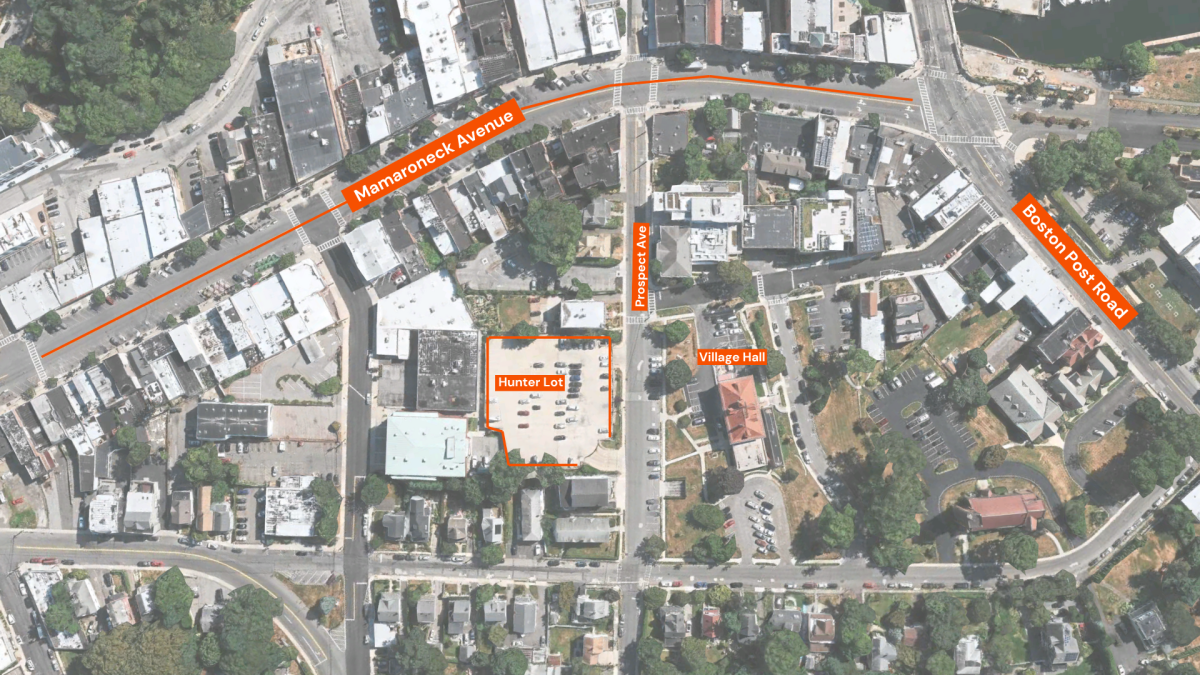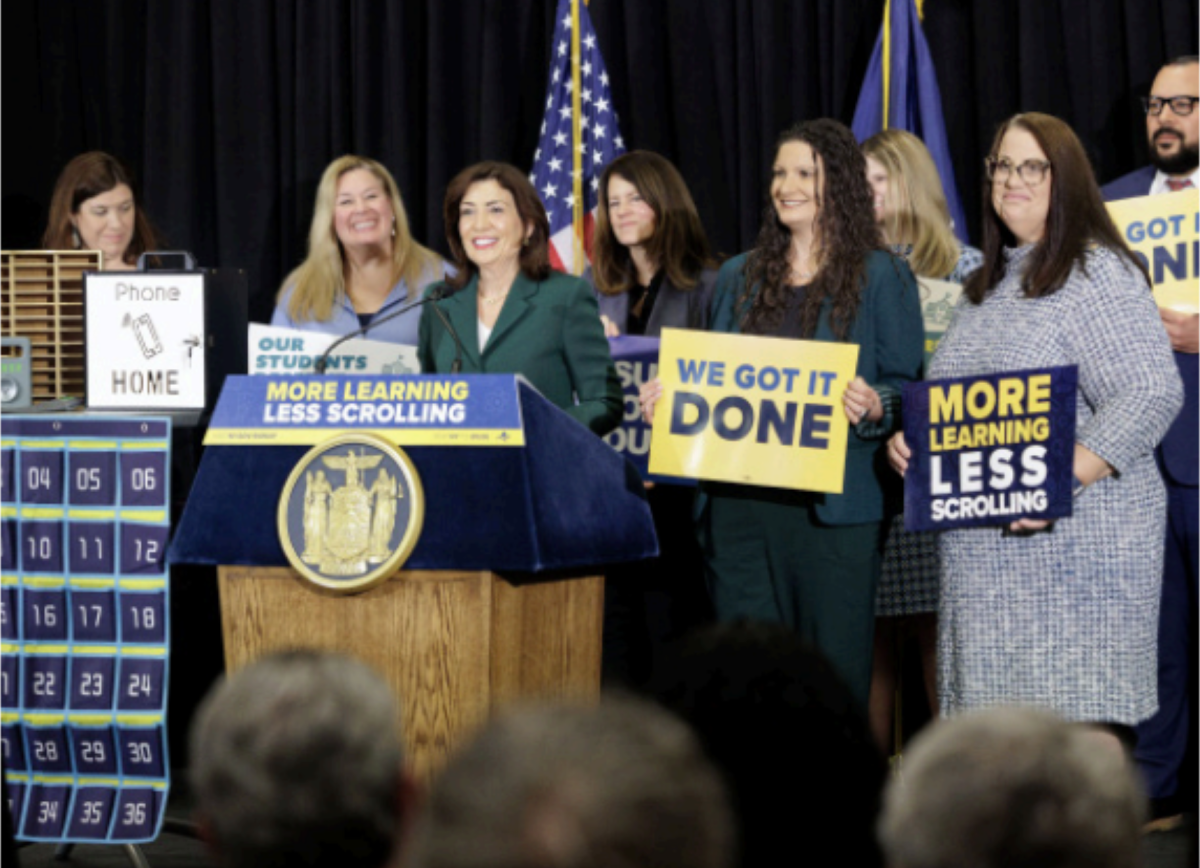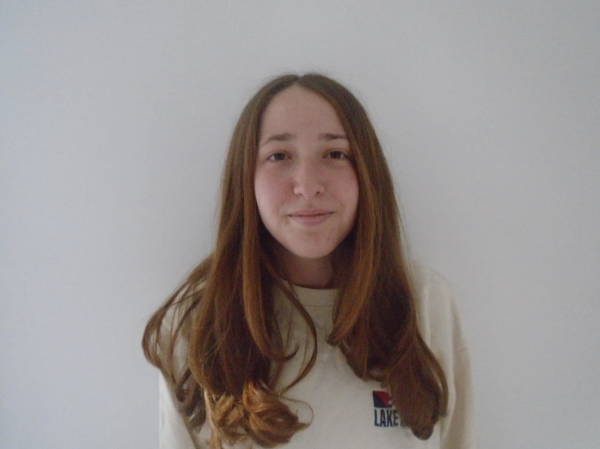On Monday, January 29th, Westhab, a local affordable housing developer and the parent company of the Washingtonville Housing Alliance, was scheduled to give a second presentation to the Board of Trustees and Mayor Sharon Torres regarding a proposed affordable housing project at the Hunter Tier parking lot. This space is situated across from Mamaroneck Village Hall. Westhab first presented the plan to the Village in November after the Village of Mamaroneck put out a Request for Proposal (RFP) for an affordable housing development at the Hunter Lot in August of 2023. After presenting in November, Westhab revised the proposal based on concerns from both the Board and community members, notably about the addition of more public parking spaces.
Local nonprofit organizations such as the aforementioned Washingtonville Alliance, the Community Resource Center, and volunteer committees such as the Mamaroneck Coalition for Affordable Housing have stakes in the project.
Other community members have organized in opposition to the project. The “Stop Hunter Lot” Website emerged from a private Facebook group titled “Concerned Village of Mamaroneck Residents.” The private Facebook group has over fifteen hundred members, many of whom have expressed varying degrees of concern about the project.
It was reported that various members of the Mamaroneck community faced racial discrimination from their own neighbors both at the meeting on the 29th and online via NextDoor and Facebook. Many of these insults were directed at Community Resource Center (CRC) clients. According to the CRC’s website, the organization’s mission is to “empower immigrant and low-income families by providing the resources and advocacy to help them become self-reliant and thriving members of the community.” In an official statement, the CRC Board of Directors “condemn(ed) in the strongest terms” what they called “racist verbal attacks on CRC staff and clients.” “Stop Hunter Lot” did not respond to The Globe’s request for comment.
Member of the Washingtonville Housing Alliance Board of Directors and the Mamaroneck Coalition for Affordable Housing Jennifer Jacobs Guzman states that “it [was] heartbreaking that residents in our community were targeted with racial slurs and intimidation as they attempted to participate in a public meeting about affordable housing on January 29th.” She went on to note how “our community typically prides itself on its diversity and ability to share differing perspectives and political persuasions. However, based on the environment on display on Jan 29th, you couldn’t tell.” She hopes “that our elected officials will take lessons from this day and find ways to make our public dialogue more inviting.”
Mayor Torres and the Board of Trustees canceled the meeting just before it began due to overcrowding and safety concerns. Another Affordable Housing development group, Luna, which also submitted a proposal for the Hunter Lot property, was scheduled to present the following night, Tuesday, January 30th. This meeting was also canceled and replaced with an “emergency” executive session that was broadcast on LMC media. During this meeting, the Board of Trustees intended to regroup and figure out how to go forward with the project.
While the meetings are yet to be rescheduled, the Board of Trustees established at a Village meeting on January 22nd that they would choose between the two proposals by March 15th, 2024.
Much of the concern coming from residents involves overdevelopment in general in the Village of Mamaroneck, with residents being concerned about both flooding and limited Village resources. The Hunter Lot property sits above the floodline, however Stop Hunter Lot argues that, in general, “overdevelopment is a factor in flooding of Mamaroneck neighborhoods” and allowing development of the Hunter Lot could lead to more, potentially flood-prone, future developments. The organization argues that “development of any kind should be halted and resources focused on flood mitigation.”
President and CEO of WestHab, Richard Nightingale, spoke to Globe staff prior to the 29th. Addressing flooding and other concerns, Nightingale said WestHab and Washingtonville have worked to create the “most attractive, contextual, and thoughtful proposal” possible. Nightingale argues this approach takes important community issues, such as flooding, into account. For example, according to Nightingale, WestHab’s proposal features a green roof, with vegetation that can absorb water and help mitigate the risk of flash floods. The Hub, the community space included in the WestHab proposal, could also serve as a “place of refuge during emergencies and/or in the event of a natural disaster such as the horrific flooding from Hurricane Ida, or another call to action,” Nightingale said.
As for Village services, in a statement on their website, the Stop Hunter Lot organization said, “There is almost no economic benefit to the Village giving up this valuable piece of land,” adding that there is a “genuine concern that homeowner taxes will increase to foot the costs to expand our infrastructure to accommodate these new residents.”
Nightingale argued, however, that “tax revenue collected from a multi-family building, like what is proposed here, would be significantly more than local expenses to serve that building.” A study from Harvard University’s Joint Center for Housing Studies corroborates Nightingale’s claim, stating that “high density development actually is more efficient than low density development.” As with low density development, “local governments must provide fire and police protection (as well as other services) over a larger area.” Moreover, Nightingale says that, right now, because the property belongs to the Village, it “is not on the tax rolls at all.” The specific tax revenue numbers for this site have not been determined yet.
Opponents view the economics of the project differently, bringing forward additional concerns about tax revenue and revenue from the sale of the property. In a February 2nd NextDoor post, one resident wrote “all the village stands to ‘keep’ is approx[imately] $437,000 [from the sale of the land.] As it stands now, even in need of repair, the Hunter parking lot is a valuable asset to residents, visitors, community services and commerce.” A leader of the “Stop Hunter Lot” organization shared a similar argument, taking to NextDoor to share that “of the Westhab bid for $5,000,000, roughly $4,563,000 will be returned to Westhab for building – the village nets only $437,000 for this valuable land.” Nightingale, in a memo to Mayor Sharon Torres and the Village of Mamaroneck Board of Trustees, confirmed these claims, saying “of the $5,000,000 acquisition price, the Village of Mamaroneck would keep $437,225 as the purchase price for the property.” This same resident also stated that “the development would receive tax abatements which could last up to 20-25 years.” Nightingale and Westhab, however, say the Hunter Lot proposal includes no real estate tax abatements, despite these claims. This resident did not respond to The Globe’s request for comment.
Residents also share concerns surrounding overpopulation in the Village, particularly its impact on the availability of parking and on school enrollment.
Nightingale says concerns about parking have been “empirically disproven with data over and over again.” However, many residents still fear the loss of parking. For example, a Village of Larchmont resident argued, “the loss of 100 parking spots is neglectful of this board” in a February 2nd NextDoor post. The initial WestHab proposal included around 52 public parking spaces as opposed to the current 200-space lot made up of metered, permit, and municipal employee parking. The revised proposal, after community input, includes around 103 public parking spots. In a letter to Mayor Sharon Torres and the Village of Mamaroneck Board of Trustees, Nightingale said, “We are prepared to add an entire additional level of parking for public use to meet the community’s needs (referring to the revised proposal)” but noted that “the cost to build the (new) parking level is significantly more expensive than the other two levels because the construction will likely require significant rock excavation.”
As for school population, a study conducted by 4Ward Planning in 2022 examined the impact of multi-family development on population size. In regard to schools, the research predicts a 0.1 student per unit ratio. This means a 77-unit building, like the Hunter Lot proposal, might produce about 8 students. In comparison, the Harvard Study notes that in new construction, single family developments bring in an average of “64 children per 100 new single-family houses.”
Another concern that has emerged in response to this proposal involves who will actually get to live in these units. In the previously mentioned NextDoor post, the same resident stated that if the project were to move forward, “the units would NOT go to Village of Mamaroneck residents.” Affordable housing units must be allocated through a lottery process done at the County Level, and be accessible to residents from nine counties, in order to adhere to the federal Fair Housing Act and New York State Human Rights Law which “make it illegal for housing providers and lenders to discriminate” (New York State Homes and Community Renewal). That said, Village of Mamaroneck residents do have a chance of receiving a unit, albeit small due to a massive demand for housing within the metro region. Advocates of the project argue that through marketing and advocacy, there are ways to maximize the number of current Mamaroneck residents who apply for the lottery and potentially help them get placed in the units.
Nightingale and Guzman both underscored Washingtonville’s deep commitment to the community, noting that the organization has been a not-for-profit stakeholder for 44 years in the Village. Nightingale went on to explain that what “we can do is make sure every eligible Mamamaroneck resident who is interested applies” and added that “anyone can come into our office, we can help them with the application, and we can make sure their applications are placed.”
In the next few weeks, the Village will release new dates for these two presentations.
While the project’s future remains uncertain, many remain cautiously optimistic. Guzman, for example, mentioned how “diverse housing stock is critical for a healthy community,” and how Washingtonville has been looking for a project like this one throughout its 44-year history in the community. Moreover, Guzman encourages open and earnest dialogue “about school enrollment, number of units, and about how affordable housing works.” Stop Hunter Lot notes they “are not against affordable housing” and are interested in more, as long as it is “done responsibly.”










